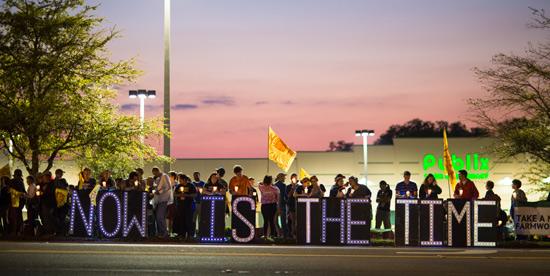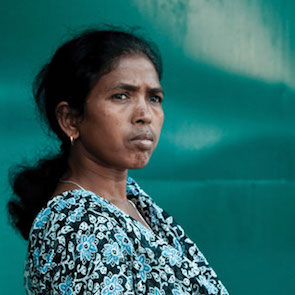Soni Sori, an Adivasi woman, was once a primary school teacher in Chhattisgarh. In 2011, she was arrested, in Delhi, on trumped up charges, shipped back to Chhattisgarh where she was subjected to torture and sexual violence in police custody. Two women officers present were threatened to remain silent. After some protest, Soni Sori was finally sent to hospital and then back to prison. In November 2013, she was released on bail. Earlier this year, Soni Sori ran, unsuccessfully, for Parliament, on the Aam Admi Party slate.
On October 10, 2014, a film crew from a German television channel went from Delhi to Chhattisgarh to interview Soni Sori about her experiences of custodial torture. She took them to her village, Palnar, where they met the police. After the interview, Soni Sori returned to her home in Geedam. That night, plainclothes agents barged into her home and interrogated her concerning the identities of the film crew. As noted in a recent press release by Women Against Sexual Violence and State Repression, or WSS: “Soni’s household is an all woman household along with three of her children the eldest of whom is only 13 and the youngest is just 8. While Soni did not recognize all of them she did recognize a few of them as members of the local police of Geedam. Some of the members kept questioning Soni, few of the others barged into the other rooms including the bathroom and started searching and looking around. Despite Soni’s demands asking them to leave her house they continued with the questioning. Furthermore, these persons refused to answer all questions of Soni regarding their identity, but continued their questions regarding the crew. The team then went on to state that Soni should have immediately informed the police regarding the coming of the team and in future she should inform them about any people visiting her and provide details regarding the purpose of the visit. By the time the team left, Soni’s family was quite shaken up, especially her children, as they had thought that the team had come to once again arrest Soni and put her in jail.”
Why can’t Chhattisgarh leave Soni Sori alone? What’s so important about this one woman, surrounded by women, that she’s worth all the investment of broken doors, bones and promises?
Chhattisgarh is rich in resources, forest, tribal people, and women. It’s one of the few places in India where the population is more or less equally divided between women and men. Women have participated in every aspect of agricultural production, of labor, and of public life. With the arrival of the global market, the areas women dominated, in particular that of food security and food sovereignty, don’t carry the same value in a global economy, and now men receive positions of authority, from both multinationals and the national government, in the new local world order where women are meant to become ghosts, reminders of a bygone era that is bought, sold, and gone.
Soni Sori has refused that narrative. When released from prison, she immediately thanked the women’s movements, formal and informal, and prodded them to do more, especially for rural women. She returned, in full force, to the struggle, despite State-run “security campaigns” that wreak havoc on the lives and well being of women.
The State can’t afford autonomous rural, indigenous women, nor can it afford fierce women schoolteachers. India wants ghost women, and is willing to pay heavily to get them. Stop the harassment of Soni Sori, and support the women who refuse to be ghosts.
(Photo credit: WSS)

